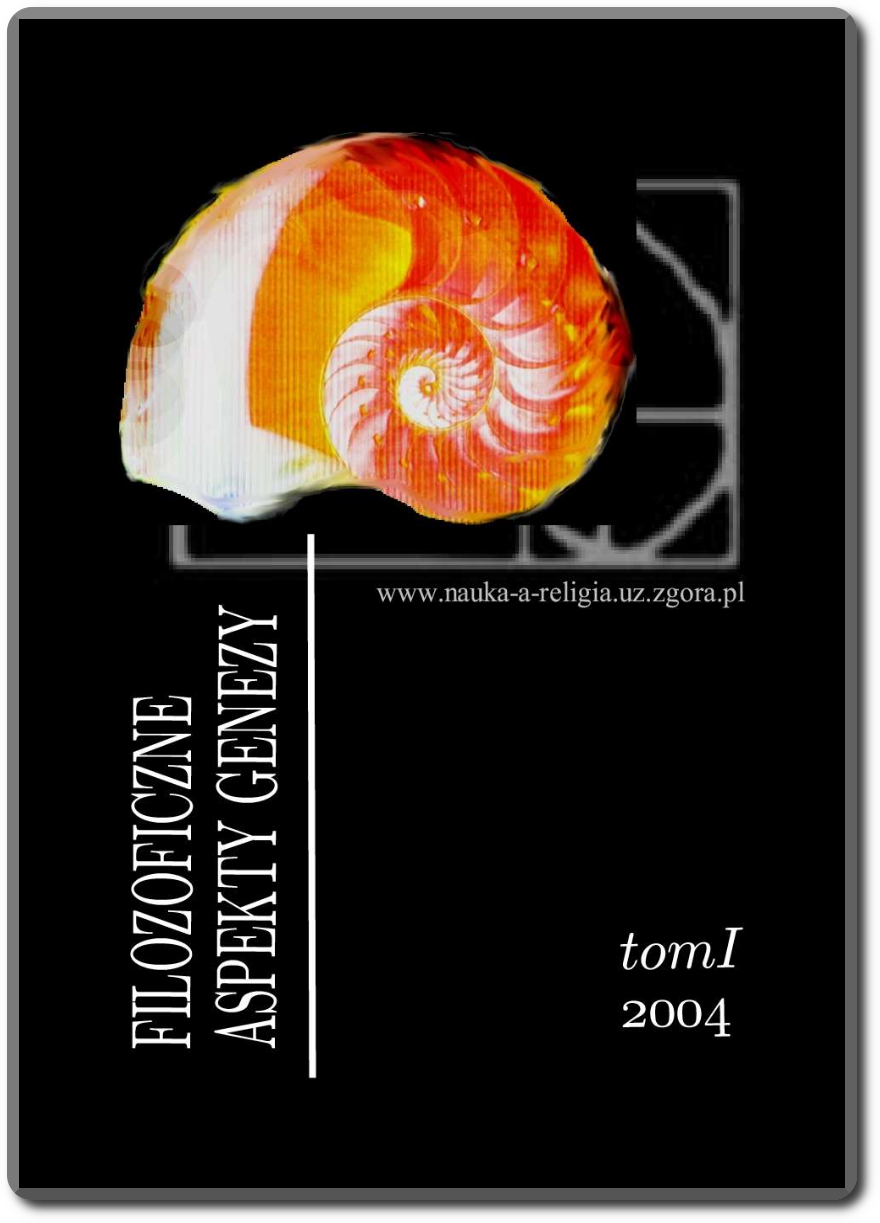Opublikowane 21.05.2021
Słowa kluczowe
- Michael J. Behe,
- nieredukowalna złożoność,
- mechanizm samokomensacyjny,
- rachunek prawdopodobieństwa,
- algorytmiczna teoria prawdopodobieństwa
- teoria inteligentnego projektu,
- ewolucja ...More

Utwór dostępny jest na licencji Creative Commons Uznanie autorstwa 4.0 Międzynarodowe.
Jak cytować
Abstrakt
Niniejszy artykuł jest rozdziałem książki Marka Perakha, Unintelligent Design. W rozdziale tym krytykuje on Michaela Behe’ego koncepcję nieredukowalnej złożoności. Perakh argumentuje, że nieredukowalna złożoność jakiegoś układu – przeciwnie do tego, co twierdzi Behe – wcale nie wskazuje na inteligentny projekt, lecz oznacza, że powstał on w sposób przypadkowy. Według Perakha systemy inteligentnie zaprojektowane to takie, które charakteryzują się względną prostotą, i które mają wbudowane mechanizmy kompensujące stratę lub uszkodzenie jakiegoś składnika. Utrzymuje on, że prawdopodobieństwo spontanicznego powstania złożonego systemu, który pełni pewną funkcję, jest dużo większe niż prawdopodobieństwo spontanicznego powstania układu, pełniącego tę samą funkcję w prostszy sposób.
Downloads
Bibliografia
- Perakh Mark, Unintelligent Design, Prometheus Books, New York 2004. Mark Perakh t. 1 71-113 CC BY-NC 4.0 czasopismo 2004
- Behe Michael J., Darwin’s Black Box: The Biochemical CHAllenge to Evolution, Simon and Schuster, New York 1996.
- Dembski William A. (ed.), Mere Creation, InterVarsity Press, Downers Grove, Ill. 1998.
- Johnson Phillip E., Defeating Darwinism by Opening Minds, InterVarsity Press, Downers Grove, Ill. 1997.
- Miller Kenneth, „Life’s Grand Designs”, Technology Review 1994, vol. 97, no. 2, s. 24-32.
- Doolittle Russell F., „A Delicate Balance”, Boston Review 1997, vol. 22, no. 1, s. 28-29.
- Orr H. Allen, „Darwin v. Intelligent Design (Again): The Latest Attack on Evolution Is Cleverly Argued, Biologically Informed – and Wrong”, Boston Review, www. bostonreview.net/BR21.6/Orr.html (6 sierpnia 2003).
- Ussery David W., „A Biochemist’s Response to «The Biochemical CHAllenge to Evolution»”, Bios 1999, vol. 70, s. 40-45.
- Borel Emile, Probability and Life, Dover, New York 1962.
- Behe Michael J., Przedmowa do książki Williama DEMBSKI EGO, Intelligent Design: The Bridge between Science and Theology, InterVarsity Press, Downers Grove, Ill. 1999.
- Dembski William A., The Design Inference: Eliminating Chance through Small Probabilities, Cambridge University Press, Cambridge 1998.
- Kołmogorow Andrei N., „Three Approaches to the Quantitative Definition of Information” (po rosyjsku), Problemy Peredaczi Informacii 1965, vol. 1, no. 1, s. 3-11. Tłumaczenie angielskie w Problems in Information Transmission 1965, vol. 1, s. 1-7, oraz International Journal of Computational Mathematics 1968, vol. 2, s. 157-168.
- Chaitin Gregory J., „Randomness and Mathematical Proof”, Scientific American 1975, May, vol. 232, s. 47-52, przedruk w: Niels Henrik GREGERSEN (ed.), From Complexity to Life, Oxford University Press, New York 2003, s. 19-33.
- Ratzsch Del, „Design, Chance, and Theistic Evolution”, w: William A. Dembski (ed.), Mere Creation, InterVarsity Press, Downers Grove, Ill. 1998.
- Berlinski David, „Gödel’s Question”, w: William A. Dembski (ed.), Mere Creation, InterVarsity Press, Downers Grove, Ill. 1998, s. 402-426.
- Young Matt, „Intelligent Design Is Neither”, www.mines.edu/~mmYoung/DesnConf.pdf (17 stycznia 2002).
- McDonald John H., „A Reducibly Complex Mousetrap”, http://udel.edu/~McDonald/oldmousetrap.html (9 kwietnia 2002).
- Behe Michael J., „A Mousetrap Defended: Response To Critics”, Discovery Institute, 31 lipca 2000, http://www.discovery.org/scripts/viewDB/index.php?command=view&id=446.
- Shanks Niall and Joplin Karl, „Redundant Complexity: A Critical Analysis of Intelligent Design in Biochemistry”, Philosophy of Science June 1999, vol. 66, no. 2, s. 268-282.
- Bugge T.H. et al., „Loss of Fibrinogen Rescues Mice from the Pleiotropic Effect of Plasminogen Deficiency”, Cell 1996, vol. 87, s. 709-719.
- Behe Michael J., „Answering Scientific Criticisms of Intelligent Design”, w: Michael J. Behe, William A. Dembski , and Meyer Stephen C. (eds.), Science and Evidence for Design in the Universe, Ignatius Press, San Francisco 2000.
- Korthof Gert, „On the Origin of Information by Means of Intelligent Design. Was Darwin Wrong?”, home.wxs.nl/~gKorthof/Korthof44.htm (6 sierpnia 2003).



